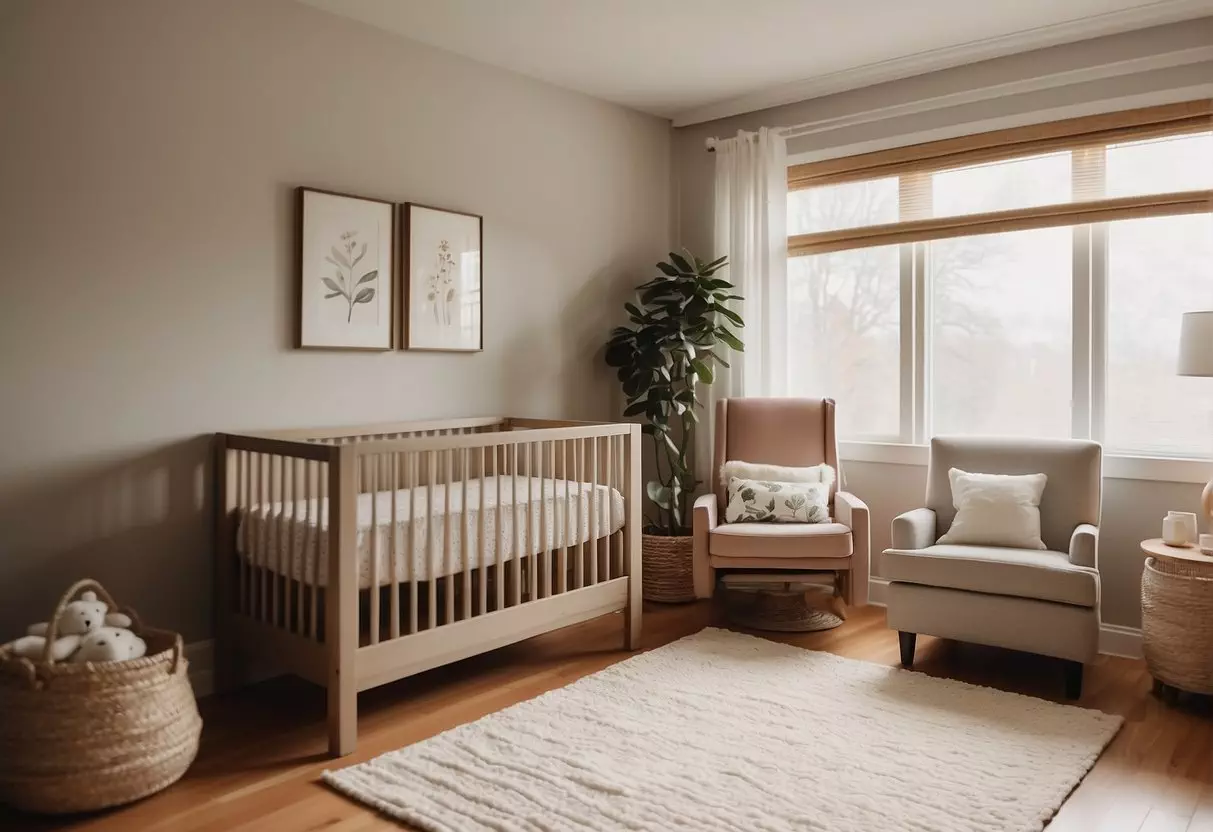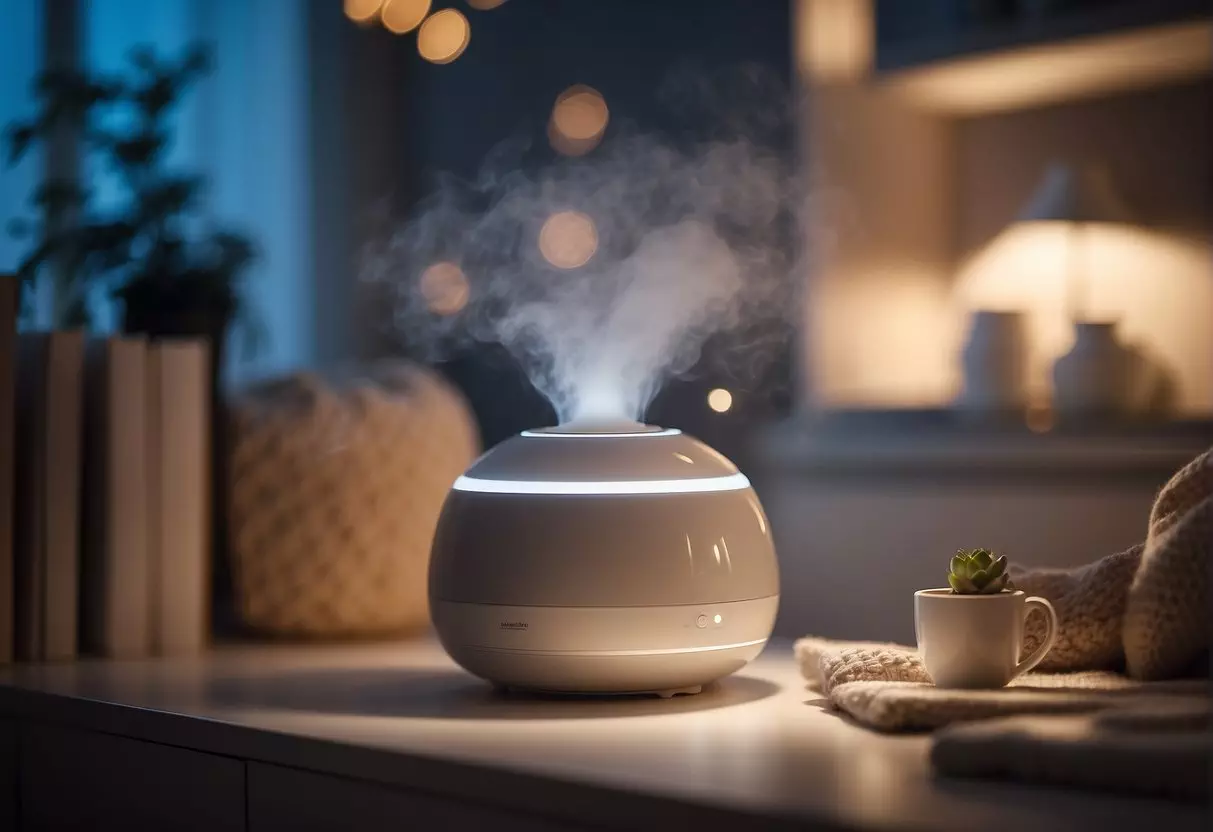Do You Need a Humidifier for Baby in the UK? Uncovering the Benefits for Infant Comfort
Deciding whether or not to add a humidifier to your baby’s nursery is a question that might pop up as you prepare for your little one’s arrival in the UK. The weather in the UK can vary, but it often includes cold, damp winters that can make the air inside your home dry, especially with the heating on. Dry air can have various effects on your baby, from dry skin to challenging nasal congestion which might disrupt their sleep.

Humidifiers can help by adding moisture to the air, creating a more comfortable environment for your baby. Maintaining the right humidity level can aid in soothing dry skin, easing breathing during sleep, and can potentially help in keeping your baby’s health in check by reducing the chance of colds and other respiratory irritants. If your baby has sensitive skin or shows signs of discomfort due to the air quality in your home, a humidifier might be a worthwhile addition to your nursery kit.
However, it’s valuable to balance the humidity levels, as too much moisture can lead to mold or mildew growth, which isn’t good for anyone’s health, especially your baby’s. It’s a good idea to consider the specific needs of your nursery and talk to a pediatrician to make an informed choice about using a humidifier. It’s not a universal necessity, but for many babies, especially in the colder months in the UK, a humidifier can improve their sleeping conditions and overall comfort.
Table of Contents
Understanding Humidifiers and Their Benefits

When considering the environment in a nursery, maintaining optimal humidity levels can be essential for your baby’s comfort and health.
Types of Humidifiers
Cool mist humidifiers work by dispersing a fine vapor into the air, which can help lower room temperature—a feature that’s beneficial during warmer seasons. Alternatively, warm mist humidifiers heat water to produce steam, which can make a room feel warmer and is often preferred in colder climates. An ultrasonic humidifier is a quiet, energy-efficient type that uses high-frequency vibrations to produce mist, suitable for both warm and cool mist outputs.
Benefits of Using a Humidifier in a Nursery
Humidifiers add moisture to the air, which can prevent the dryness that may cause irritation in many parts of the body. For babies with eczema or dry skin, the added moisture from a humidifier can help by keeping the skin hydrated. During colds or when experiencing congestion, having a humidifier in the nursery can make breathing easier by loosening mucus. Furthermore, maintaining a comfortable humidity level can improve overall comfort in the nursery, potentially aiding better sleep for your baby. For insightful information on selecting an appropriate unit, consider looking up top picks for humidifiers that could match your needs.
Selecting the Right Humidifier for Your Baby

When choosing a humidifier for your baby’s room, it’s important to consider the size, safety, and features that will create the best environment. Let’s find the perfect humidifier to give your little one the comfortable atmosphere they deserve.
Size and Capacity
To ensure you get the right balance of humidity for your baby’s room, you need to pick a humidifier with the correct size and capacity. A unit that’s too small won’t effectively humidify the space, while one too large can lead to excess condensation and mold growth. Check the coverage area against your nursery’s square footage to get an ideal fit for optimal moisture levels. For example, the Crane Drop Ultrasonic Cool Mist Humidifier is a model that suits medium-sized rooms well.
Features to Consider
Look for a humidifier with features that enhance convenience and improve the experience for both you and your baby. Consider these options:
- Automatic shut-off: This function ensures the humidifier turns off when the water level is low, promoting safety and energy efficiency.
- Night light: A gentle light can soothe your baby and help you navigate the nursery without turning on bright lights.
If you’re interested in using essential oils for gentle aromatherapy, make sure the humidifier is designed for that purpose, as regular models might be damaged by oils.
Safety and Cleaning
While you want your baby to reap the benefits of a well-humidified room, ensuring the unit is safe and easy to clean is paramount. Always opt for models with a cool mist, as they are safer than warm mist variants, which can cause burns. The device should be sturdy, with no small parts that can be pulled off and pose a choking hazard.
Cleaning is crucial to prevent the growth of mold and bacteria. Choose a humidifier with an easily accessible water tank and a design that allows for thorough cleaning, such as the Venta Original LW25 Airwasher Humidifier, known for ease of maintenance.
When considering these aspects, remember that a quiet operation will also ensure your baby’s sleep isn’t disturbed. Select a humidifier that combines these features with a design that complements your nursery for the best results.
Managing Indoor Air Quality and Health

Ensuring your home has good indoor air quality is essential, especially for your baby’s health. It can be a delicate balance to maintain the right level of humidity without encouraging the growth of mold or bacteria.
Preventing Mold and Bacteria
To prevent mold and bacteria in your baby’s nursery, it’s important to keep moisture levels in check. Mold thrives in damp environments, and excess moisture can lead to bacteria growth. You should clean your humidifier regularly and ensure that the room is well-ventilated. Keep indoor plants to a minimum as they can also contribute to higher mold levels.
Understanding Humidity and Health
The right level of indoor humidity is between 30% and 50%. Dry air, often caused by central heating, can exacerbate health issues, such as a cough, dry skin, or even the common cold. On the other hand, the American Academy of Pediatrics suggests that an appropriate level of humidity can aid in relieving congestion and maintaining healthy respiratory functions for your baby.
When to Use a Humidifier
You should consider using a humidifier in your baby’s room when the air feels dry and lacks sufficient moisture. It’s particularly beneficial during winter months when the air is naturally drier and central heating is in constant use. However, it’s crucial to monitor humidity levels, as too much humidity can also negatively impact air quality and your baby’s health.
